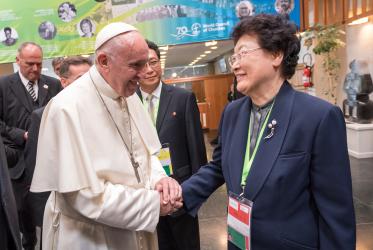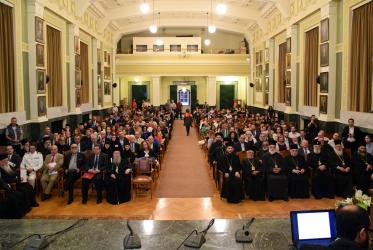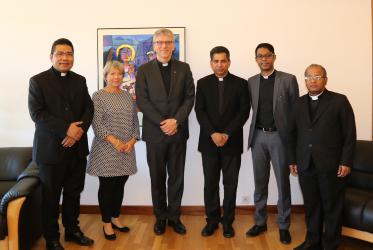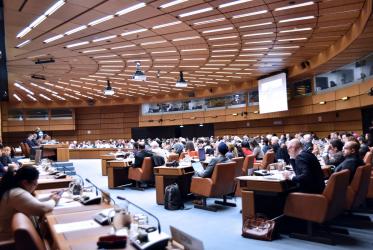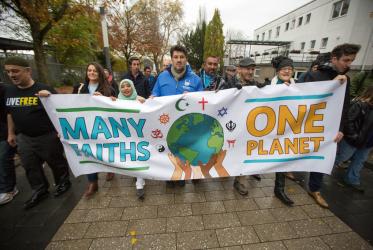Displaying 241 - 260 of 451
Violence against women focus of meeting in Italy
22 May 2018
A common journey for the WCC and the Focolare
20 April 2018
Turning plans into action to prevent incitement to violence
14 February 2018
COP 23 “debriefing” brings faith and ethical perspectives
23 January 2018
Trying to do good for the world
18 December 2017
WCC, Vatican confront xenophobia, populism and racism
16 December 2017
“We must see further than our own issues.”
14 December 2017
